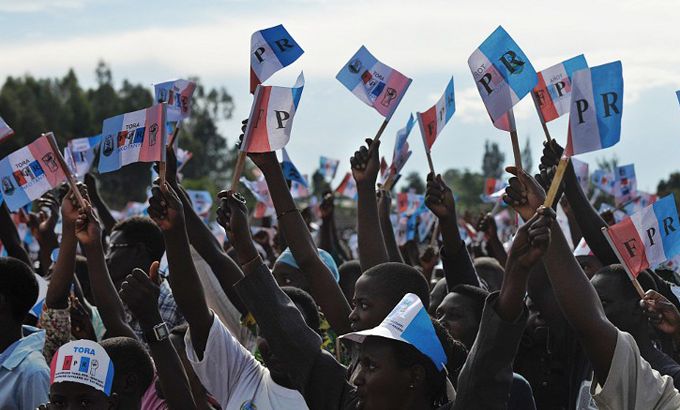Rwandans vote in parliamentary elections
The votes are projected to bolster President Paul Kagame’s ruling party.

Rwandans are voting in parliamentary polls with President Paul Kagame’s Rwandan Patriotic Front (RPF) as the forerunner.
Out of the 80 seats in parliament, 53 are directly elected and 24 are reserved for women, the youth and handicapped — who are indirectly appointed by local and national councils on Tuesday and Wednesday.
Some six million people are eligible to cast their ballots in the voting on Monday, with turnout expected to be robust despite a low-key campaign and serious opposition to the RPF.
This configuration has ensured that Rwanda has the only parliament in the world where women are in a majority — 56.3 percent after the last elections.
The RPF is leading a coalition that includes four smaller parties.
The tiny opposition or independent parties — including the Liberals, Social Democrats and the PS-Imberakuri — will be trying to scrape a handful of the seats by winning at least five percent of the popular vote, but are seen as having little chance in denting the dominance of the RPF.
Voting
Voting appeared to be relatively calm with the exception of the explosion of two grenades over the weekend in a Kigali market, a city reputed to be among Africa’s safest.
The Rwandan government blamed dissidents linked to the Democratic Forces for the Liberation of Rwanda (FDLR), a rebel group operating from across the border in Democratic Republic of Congo.
The FDLR includes remnants of Hutu extremist militia who carried out the 1994 genocide in Rwanda but who were pushed out by Kagame’s RPF, at the time a rebel army.
Economic growth
With Rwanda’s economy one of the continent’s fastest growing, the government is keen to show off the elections as a badge of national unity and democratic health.
The small nation was left in ruins by the brutal genocide of 1994, in which close to a million people, mostly from the ethnic Tutsi minority, were butchered by Hutu fighters before RPF rebels managed to take control of the country.
Rwanda has undergone a dramatic transformation in the past two decades, with robust economic growth and the strangling of corruption credited to the strong rule of Kagame.
Critics say the economic growth and security have come at the expense of freedom of expression. Kagame’s 2003 win came with an overwhelming 93 percent of votes.